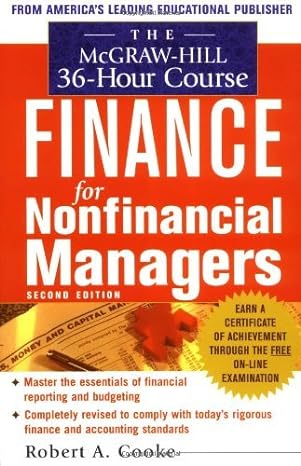Question
1) Three-Period Sequential Economy:Consider a three-period economy without government and hence no taxes. The representative agent wants to maximize her lifetime utility. Her lifetime utility
1) Three-Period Sequential Economy:Consider a three-period economy without government and hence no taxes. The representative agent wants to maximize her lifetime utility. Her lifetime utility function is as follows.
u(c1, c2, c3) =ln c1+ln c2+ 2ln c3
is a subjective discount factor. Intemporal nominal interest rates and inflation rates are constant: (i1= i2= i) and (Pie1= Pie2= pie3)
a) Construct the budget constraints. You need three sequential budget constraints. (Hint: A0= A3= 0) (5 Points)
b) Set up a sequential Lagrangian formulation of the agents problem. (5 Points)
c) Derive the first order conditions (FOCs) for c1, c2, c3, A1, and A2. (10 Points)
d) Get MRS12, MRS23, and MRS13. (Hint: Eliminate Lamda 3.)(10 Points)
e) Is the rate of consumption growth between period 2 and period 3 higher than the growth rate of consumption between period 1 and period 2? Prove your answer mathematically. (10 Points)
Step by Step Solution
There are 3 Steps involved in it
Step: 1

Get Instant Access to Expert-Tailored Solutions
See step-by-step solutions with expert insights and AI powered tools for academic success
Step: 2

Step: 3

Ace Your Homework with AI
Get the answers you need in no time with our AI-driven, step-by-step assistance
Get Started


